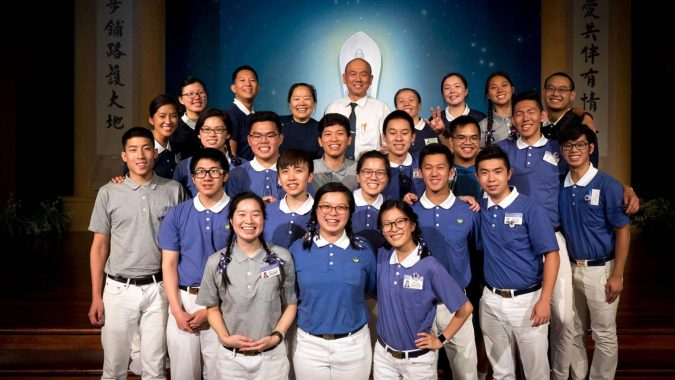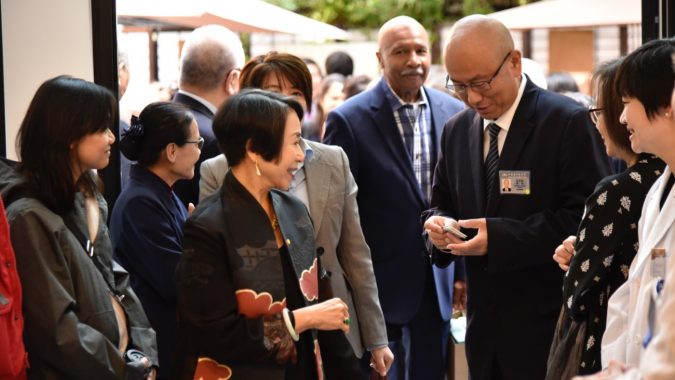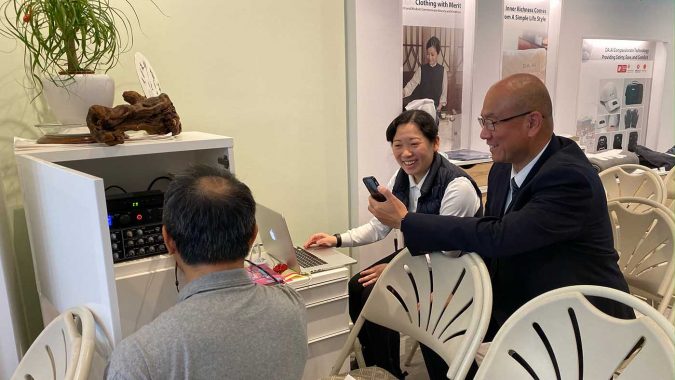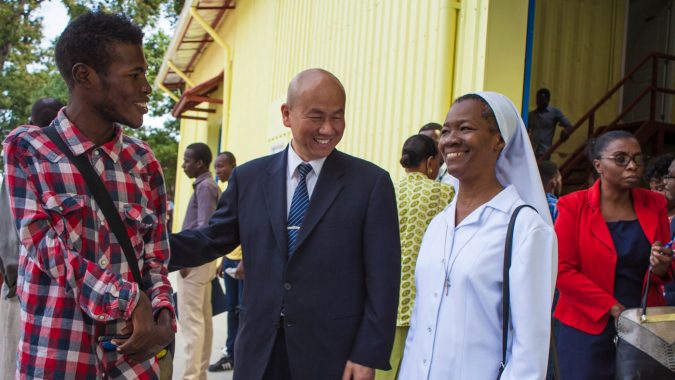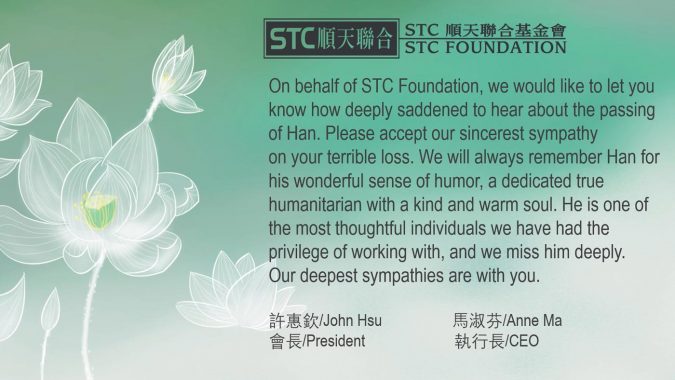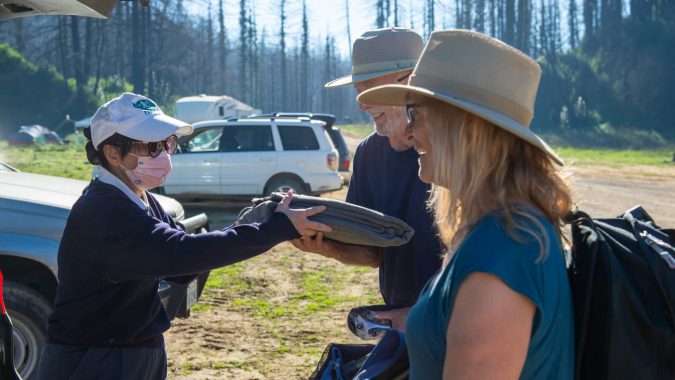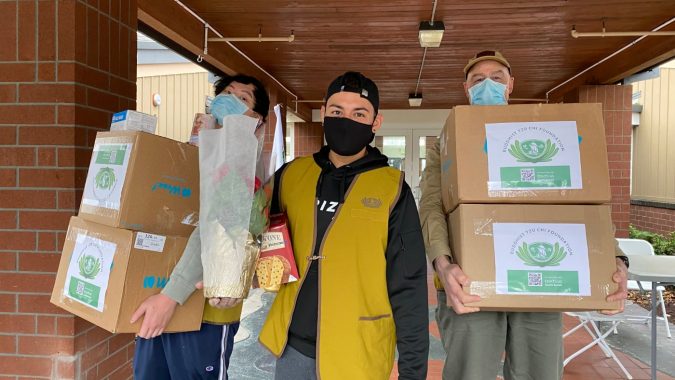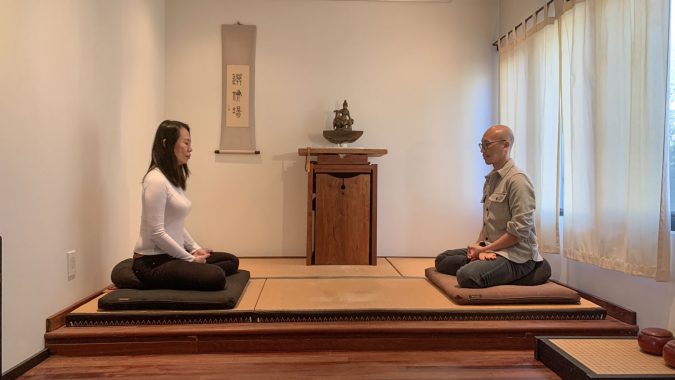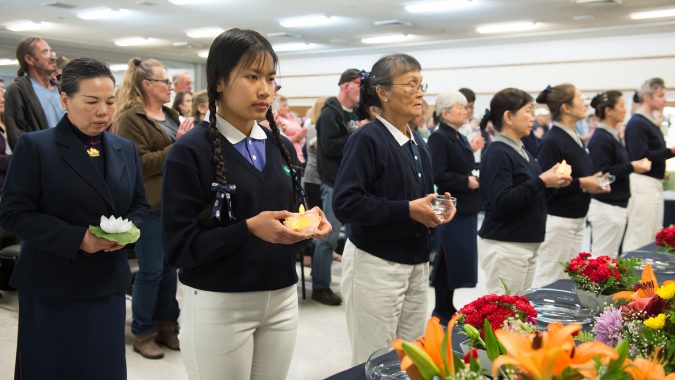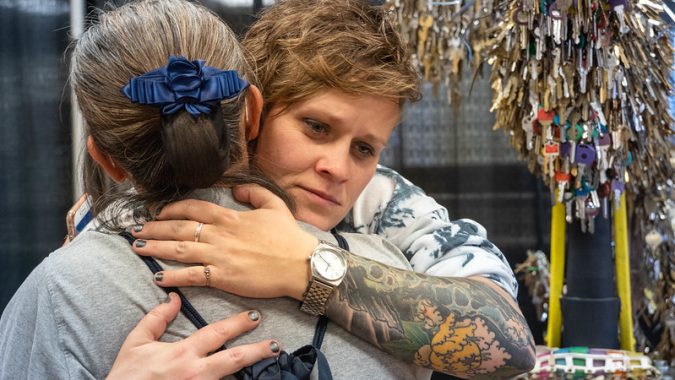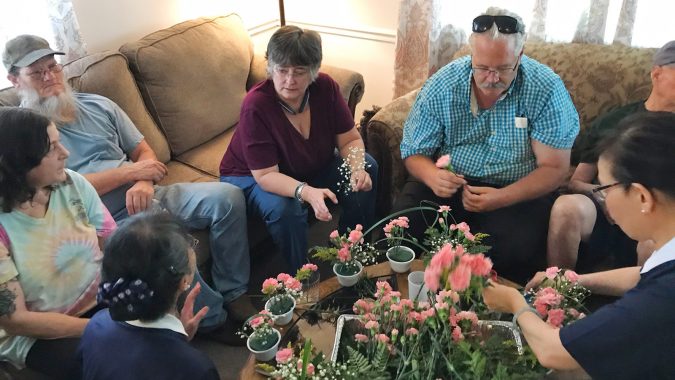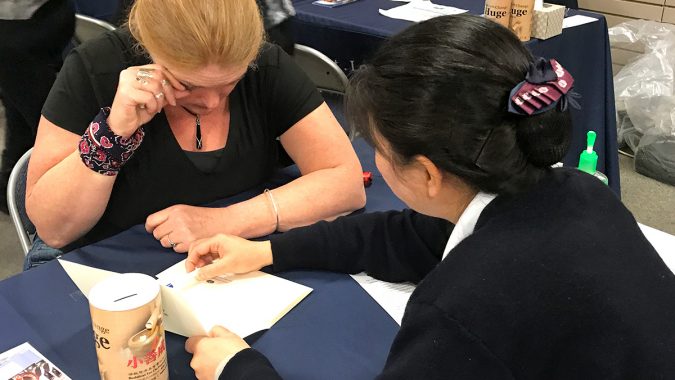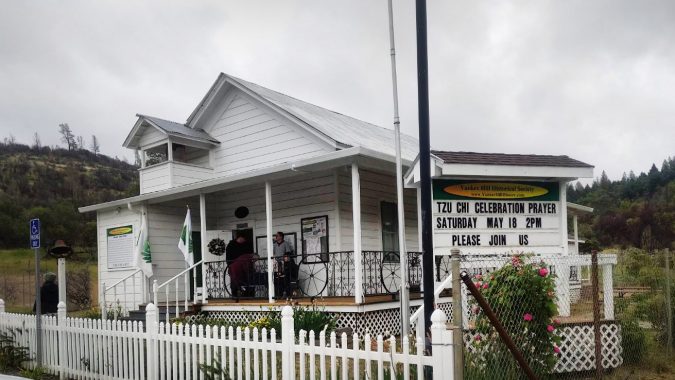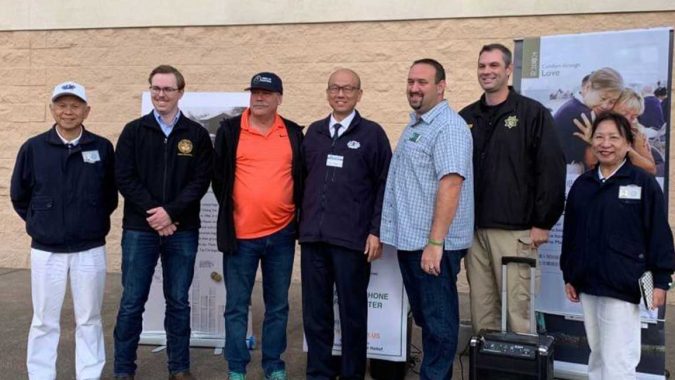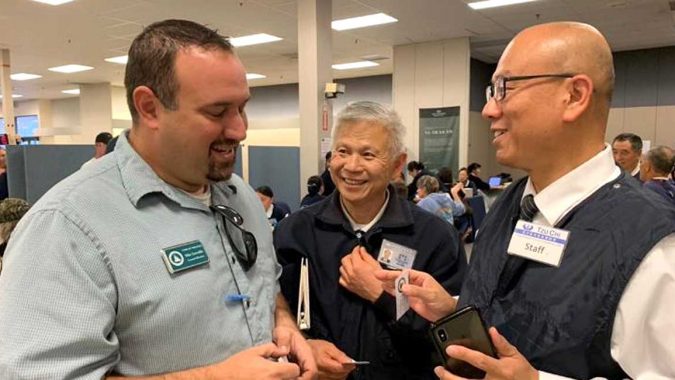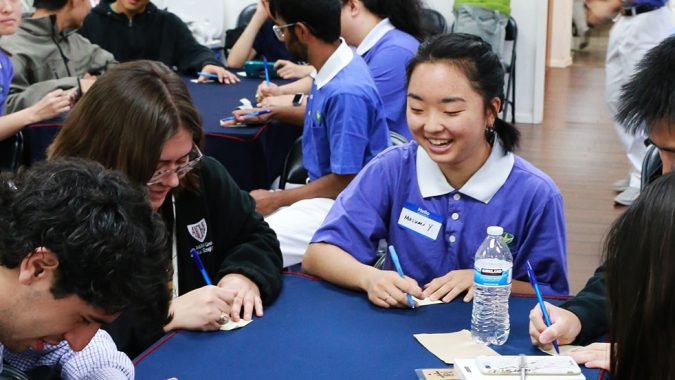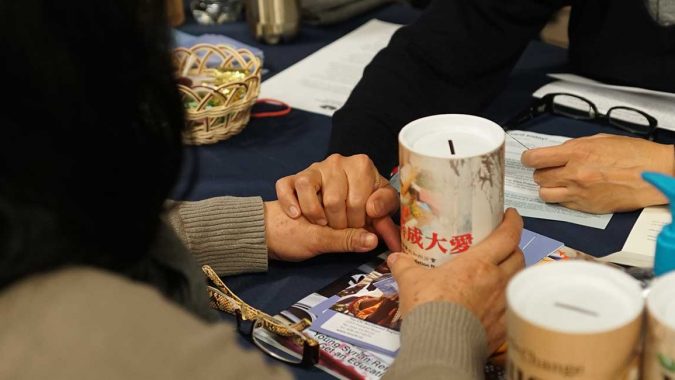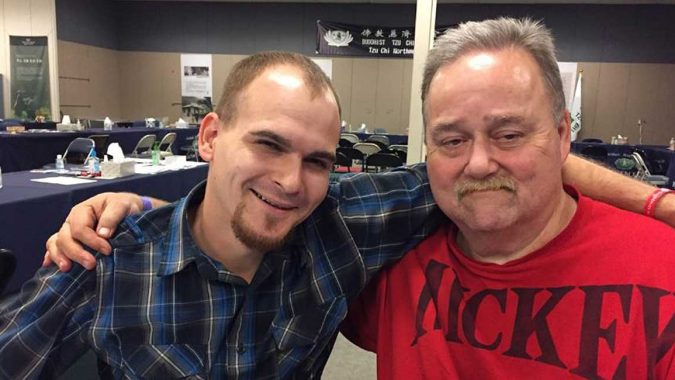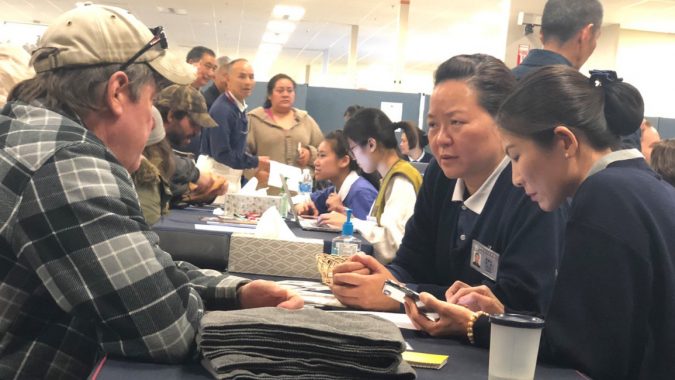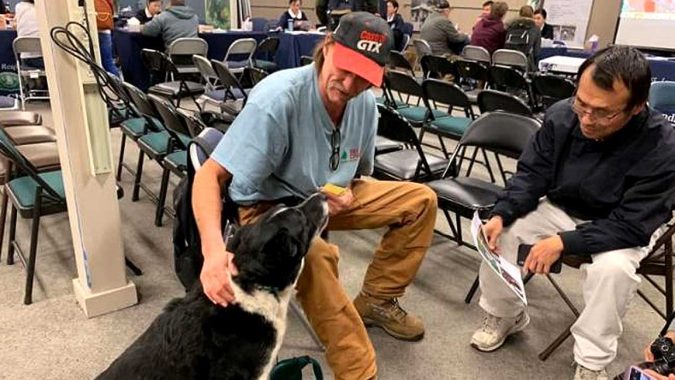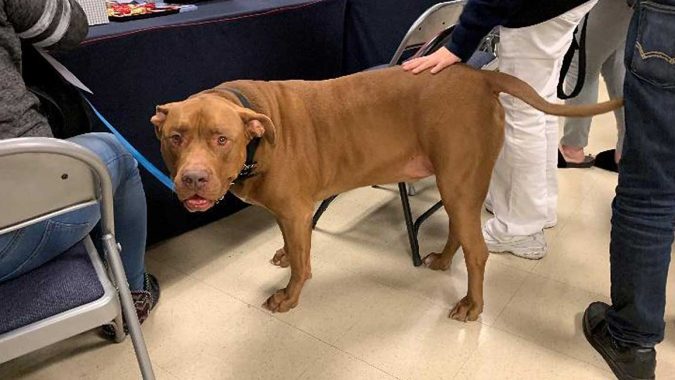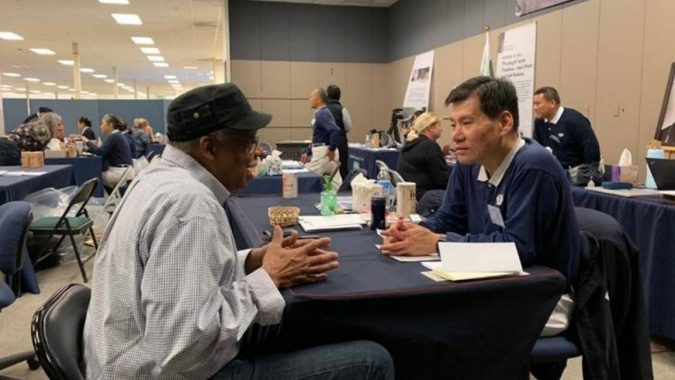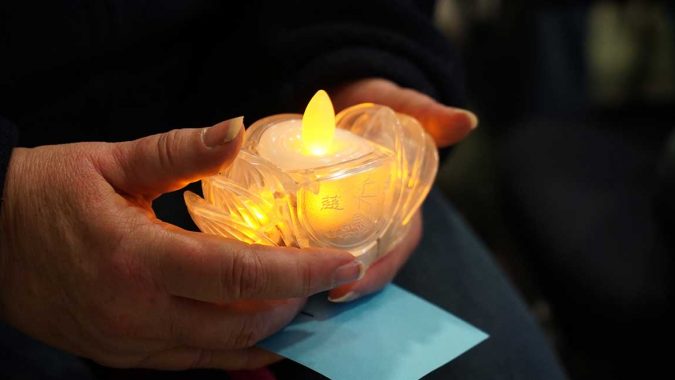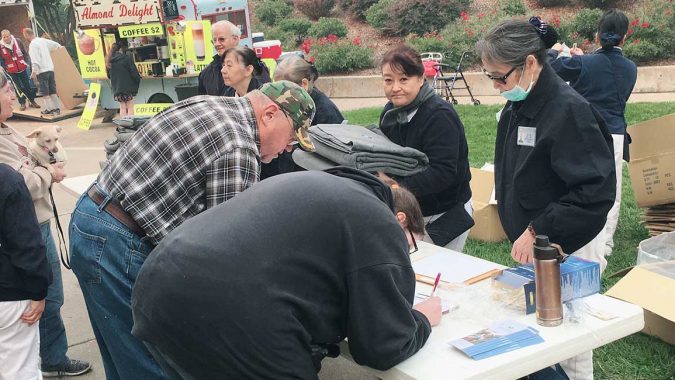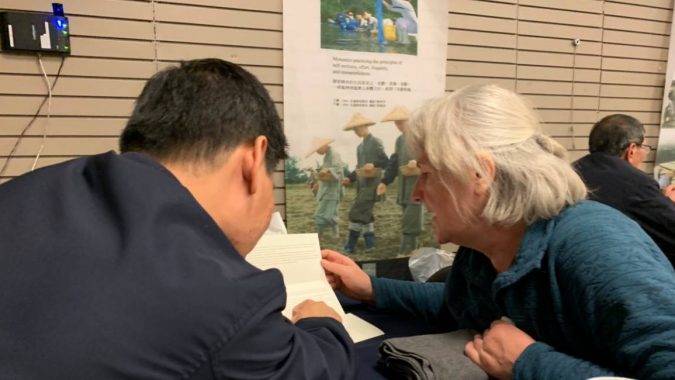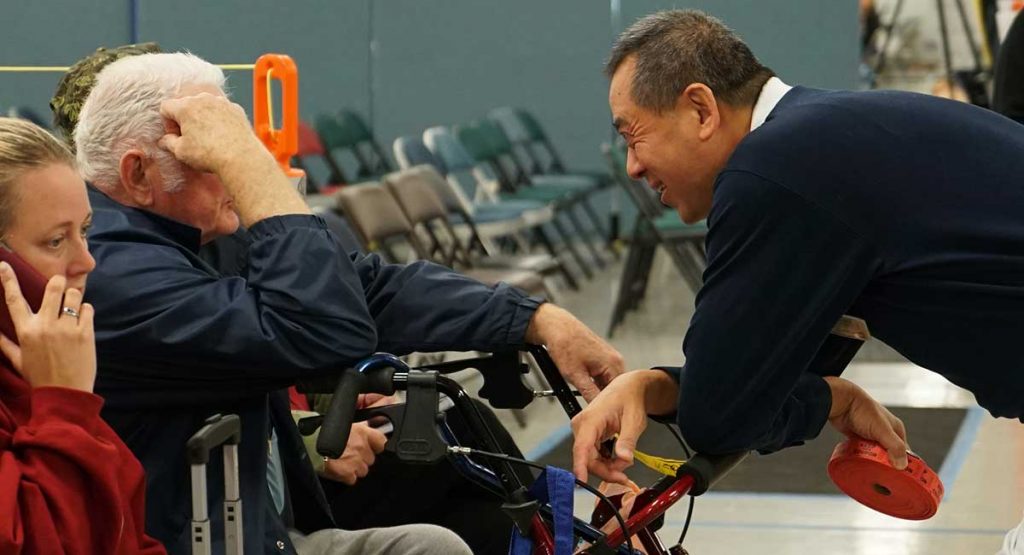
After Tzu Chi USA opens disaster relief operations to the public, there’s a fine-tuned process to help visitors become care recipients as smoothly and efficiently as possible. With the Hope Heals campaign slated to offer relief to thousands of families, Tzu Chi USA’s experienced staff and volunteers walk us through the small steps it takes to make big impact.
The Welcoming Committee
As you walk into the Disaster Recovery Center in Chico, on the left you’ll see someone in a navy polo and white pants, greeting visitors outside a partition. On one particular December day, it’s Curtis Hsing.
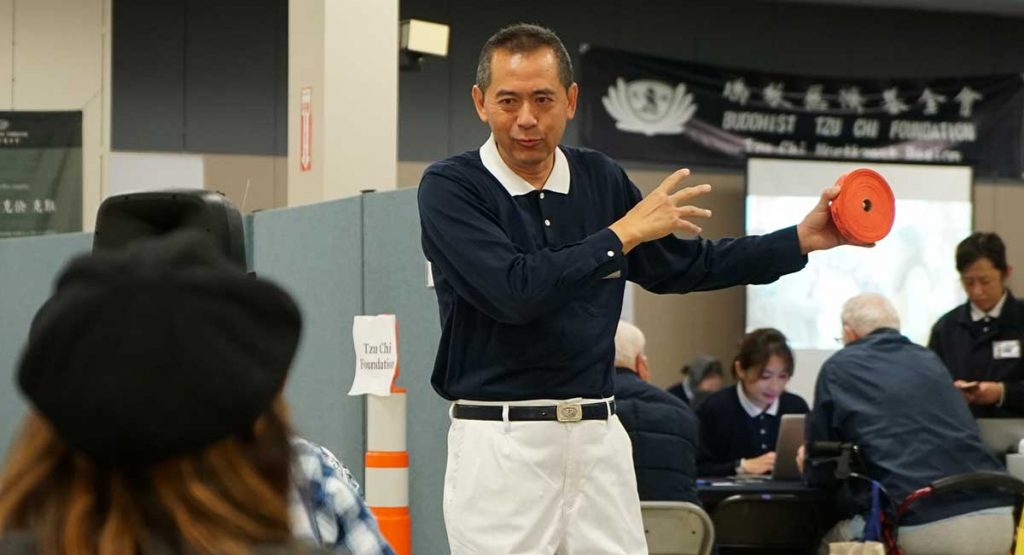
He’s tall, he’s commanding, and he’s getting a lot of laughs from a small, seated crowd, all of which hail from Paradise, Magalia, Concow, and Yankee Hill. “My goal is to keep them in higher spirits,” Curtis declares.
He’s Tzu Chi USA’s Supervisor of Emergency Disaster Services and has been on many a disaster relief mission where he’s encountered diverse populations across Haiti, Mexico, and the United States.
He immediately greets everyone who comes over and, after checking if they have the right documents, he hands them a ticket. As visitors then sit and wait, Curtis explains a little bit about the Buddhist Tzu Chi Foundation to the crowd.
When they come in, we talk to them, we cry with them, we smile with them… Then, I explain what we will do for them and then they have the confidence with us to wait five minutes, ten minutes, or 90 minutes.
Curtis Hsing, Supervisor, Emergency Disaster Services, Tzu Chi USA
Paper Trailing
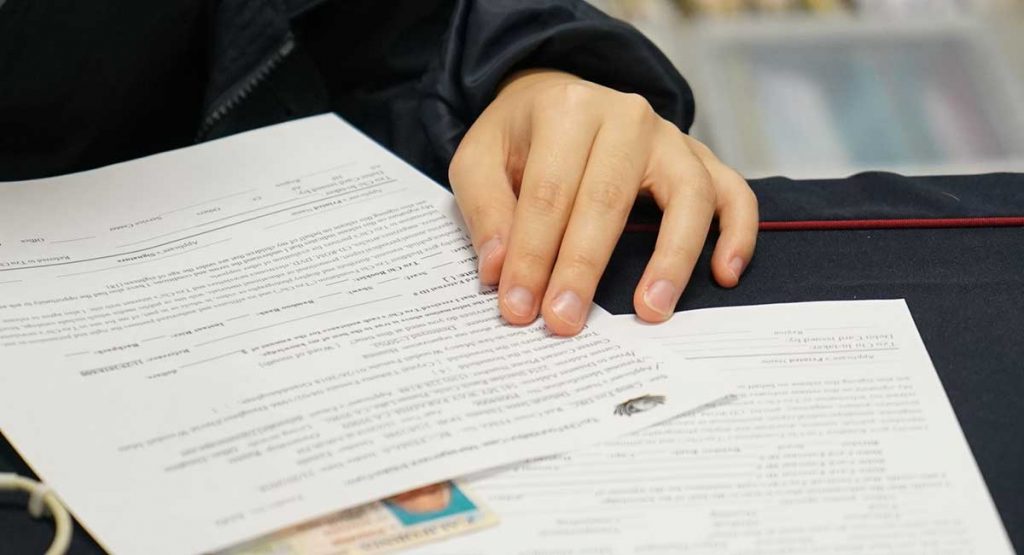
After the initial wait, it’s time for check-in. There, volunteers, like Julienne, begin processing a visitor’s case, for those who are pre-registered and those who are not. There’s a different process for both, she explains.
“If you registered online, the back office will pre-print your forms so that when you show up, you have a form already filled out, and we just check your ID and make sure that’s you,” Julienne details; “that way, you can go directly to the interview and collect your debit card.”
But, for those who aren’t pre-registered, their data must be entered by hand into the computer, and must be cross-referenced with the list in Tzu Chi USA’s database to ensure there are no duplications. Though the process may seem clunky, it’s designed to combat fraud.
From there, a visitor must then wait see the verification team. There, they will be assigned an official case number and the amount they’ll receive in their cash card.
Tricky Business
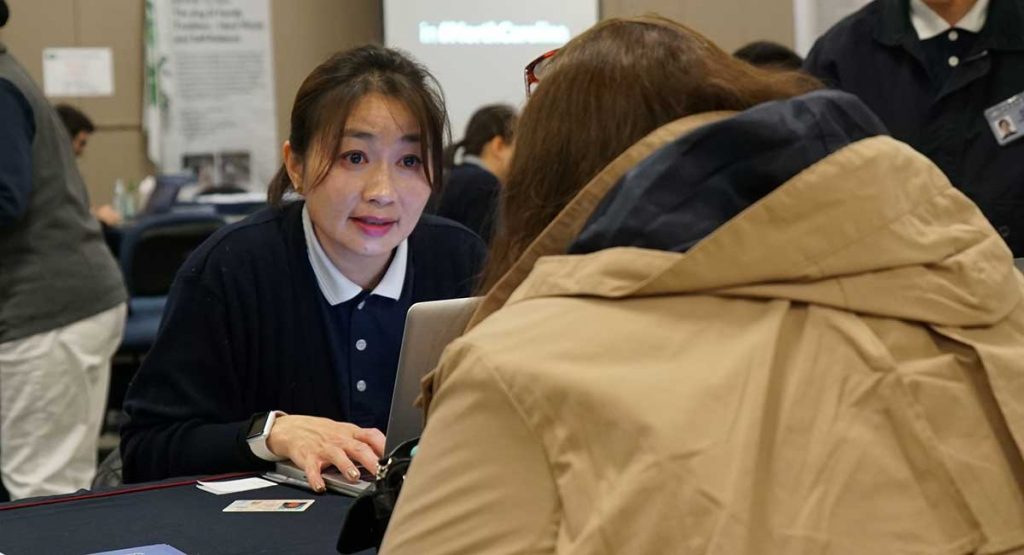
On the floor, check-in is still the most complicated part of the process. “Sometimes applicants will apply online and they will send it through multiple times, because they think it didn’t go through,” Julienne explains. Above all, the intention is to ensure financial aid goes to the rightful place.
Sometimes there’s a front property and back property, or there’s a renter and owner… Because they both can claim assistance, we just have to make sure who’s who.
Julienne Chi, Tzu Chi Volunteer
Curtis, too, faces his own hurdles as a sort of gatekeeper to the whole operation. “We can’t help everyone,” he acknowledges, as the Foundation has the resources to assist only four towns in Butte County only. Curtis adds that if their home was not completely destroyed or severely damaged, “we may not be able to help them.”
For a visitor who requests assistance regardless, sensitive times can lead to volatile situations.
Julienne recalls a visitor who didn’t have the proper documentation, “so I told him what he needed in order for us to give him assistance,” she said; “I thought he was okay with that… then he came charging back toward Brother Curtis. I understand people are going through a lot, but… I just want us to be safe.”
“Of course they are frustrated and they get emotional,” Curtis says of both the gentleman and pretty much everyone else there. For Camp Fire survivors who’ve lost a home, many of them have had great stress and little sleep, comfort, or food.
In the face of confrontation, he draws upon Dharma Master Cheng Yen’s widom: “gratitude, respect, and love; and be more patient.”
Putting Money Where the Mouth Is
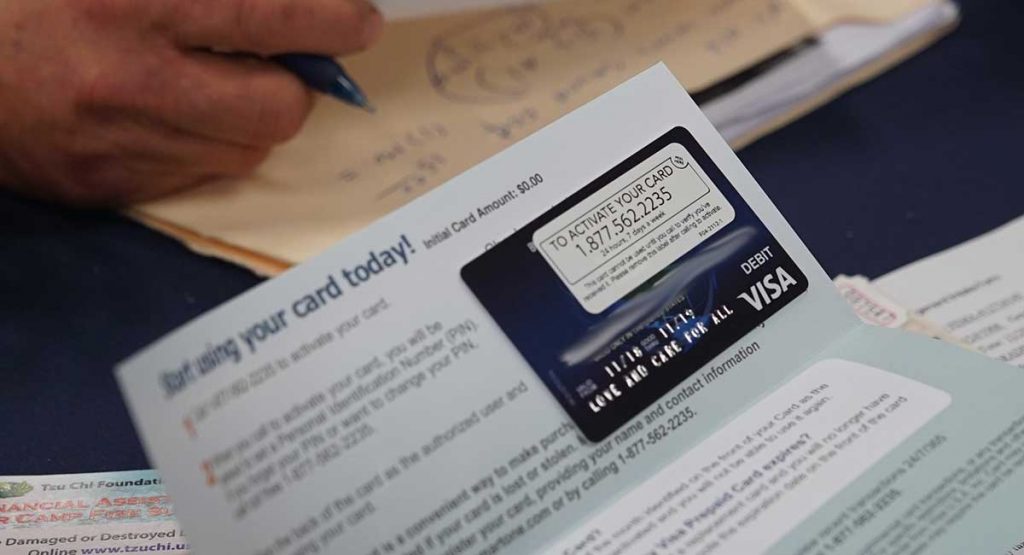
When it comes to actually receiving and using the debit card for those who qualify, Curtis shares it used to take 3-4 days after a receipt of the card for the care recipient to finally use it, but right now, the process can take anywhere from two days to a few hours.
Upon care recipients receiving their debit card, Tzu Chi USA’s accounting teams work with a bank to load the proper funds. Once the processing is done, the care recipient may then call to activate the card and it’s ready to go.
If they call before it’s been loaded? Curtis chuckles and says “we also do customer service- to help them solve the problem.”
Embracing an Environment of Disaster (and Hope)
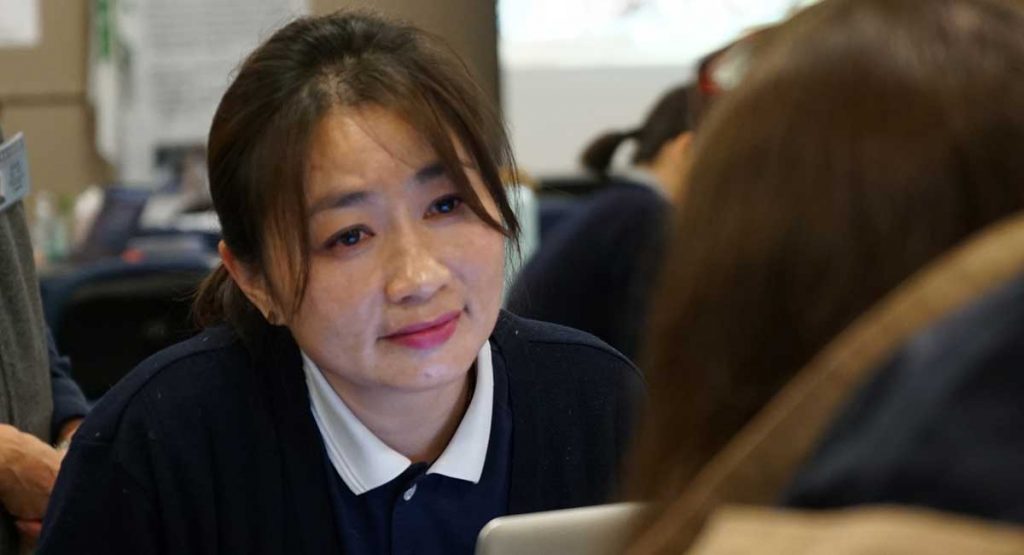
Even though much of the process relies on paperwork, there’s no denying that emotions may pour out everywhere in a disaster relief setting. Though the bulk of a visitors’ story is shared during the interview before receiving the cash card, Julienne says that even in check-in, Camp Fire survivors will just “offer what they’re going through.”
She tears up thinking about a care recipient who was planning to sleep in the park that night, and had recently contemplated suicide.
You feel the pain they’re suffering, and I feel bad. I can’t help them that much, but I hope the financial aid we give them will ease their pain a little bit.
Julienne Chi, Tzu Chi Volunteer
Curtis, too, emphasizes the sensitivity of their task: “we have to know their feeling- their frustration. They lost a home. But, since I’ve been doing this for 11 years, I’ve had the opportunity to have experience with people.”
In our mission to lift hearts and bring hope and healing after the Camp Fire, you, too, can help support the sincere efforts of our staff and volunteers who work directly with survivors of disaster.

